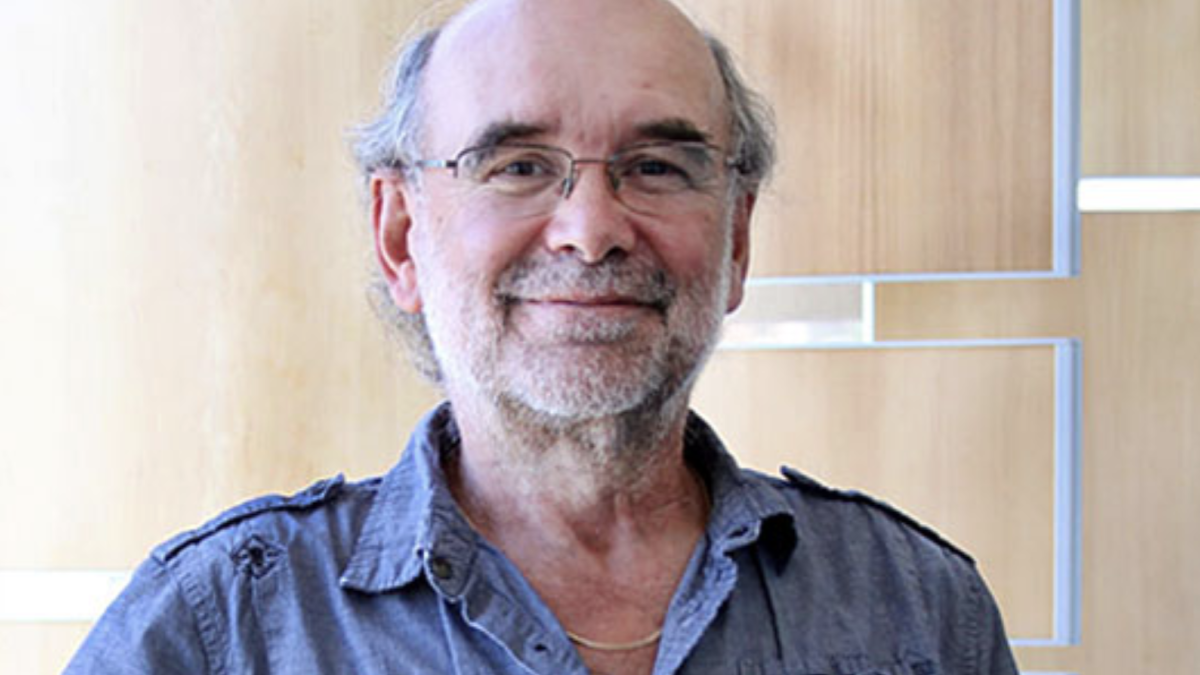OncoMyx Therapeutics invests in bringing cancer treatments to market

ASU Biodesign scientist Grant McFadden
OncoMyx Therapeutics, the latest biotech spinout company from Arizona State University’s Biodesign Institute, announced today it has raised $25 million in new funding to help commercialize an innovative, viral-based therapy for the treatment of cancer.
The announcement marks a major business development milestone for OncoMyx founder, research advisor, and ASU Biodesign scientist Grant McFadden, a pioneer in a new field called oncolytic virotherapy that can successfully program a virus to infect and kill cancer while leaving normal cells unharmed.
“Oncolytic virotherapies are emerging as a new pillar of cancer care,” said McFadden, who directs the Biodesign Center for Immunotherapy, Vaccines and Virotherapy at ASU and is also a professor in the School of Life Sciences. “OncoMyx is currently being launched in Phoenix to test next-generation viruses in human clinical trials against a variety of human cancers.”
McFadden and his collaborators have spent the past two decades evaluating a poxvirus, called myxoma virus, as a cancer-fighting agent in a wide variety of tumor models. The natural target of the virus is the European rabbit, in which it causes a lethal disease. Because it only grows in rabbit cells or cancer cells, it would not infect healthy human tissue. In humans, the virus is harmless, except when it encounters a cancer cell. McFadden’s research team has successfully targeted various types of cancers.
Preclinical studies in mice and testing on cancer patient samples from Mayo Clinic in Scottsdale have demonstrated encouraging immune responses against tumors. These data build upon the continued clinical validation of OncoMyx’s platform to expand the boundaries of cancer treatment and potentially benefit a large group of patients.
OncoMyx plans to use the proceeds of the $25 million investment to advance development of its lead oncolytic virus therapeutic program and advance additional programs into development. This completion of the OncoMyx series A financing round, which typically represents a company’s first significant round of venture capital financing, was led by Boehringer Ingelheim Venture Fund (BIVF), Delos Capital and Xeraya Capital with participation from Korea Investment Partners, City Hill Ventures and Madison Partners.
“The $25 million invested in OncoMyx is the largest amount of series A funding raised for any ASU spinout,” said Augustine “Augie” Cheng, CEO and chief legal officer of Skysong Innovations. “And it speaks volumes to the promise and potential of Grant McFadden’s scientific team’s achievements to attract this level of venture capital investment and the extraordinairy track record of our entrepreneurial abilities of our ASU faculty, staff and students to continue to bring brilliant ideas to the marketplace for the benefit of humanity.”
To date, more than 135 startups have been launched based on ASU innovations. With this investment, these companies and their sublicensees have attracted more than $800 million in funding from venture capital firms and other investors, generating substantial local economic impact.
Concurrent with the financing milestone, OncoMyx has announced the finalization of its board of directors in addition to McFadden: Steve Potts, founder and chief executive officer of OncoMyx; Kanad Das, representing BIVF; Tim Xiao, representing Delos Capital; and Jason Rushton, representing Xeraya Capital. Potts, Xiao and Rushton have extensive experience in the biopharmaceutical industry with track records of success.
“This financing is a key step forward in advancing our pipeline of oncolytic immunotherapies,” Potts said. “We are thrilled to have this strong team of experienced investors to provide the financial resources and guidance to build our company and advance our therapeutic pipeline with the ultimate goal of delivering new treatment options to patients.”
“We invested in OncoMyx because we believe in the potential of the myxoma-based oncolytic viruses for the treatment of solid cancers,” Das said. “I look forward to working with Steve, Grant and the rest of the team to develop drugs that help improve patients’ lives across a range of malignancies.”
McFadden said he hopes the team can get the OncoMyx therapy into human clinical trials in the next few years. About two dozen other viruses that might treat cancer are currently in clinical trials. The U.S. Food and Drug Administration approved the first virus to treat cancer in 2015.
More Health and medicine

Making medicine side-effect free
Many drugs that address medical conditions can come with serious side effects. In drug commercials, the litany of potential side…

Diagnostic research happening at ASU focused on detecting diseases earlier to save lives
It was one of America’s founding fathers, Benjamin Franklin, who may have foreshadowed today’s health care innovation when he…

Fighting the fungus among us
It starts with a spore.When inhaled, spores of the coccidioides fungus can cause coccidioidomycosis — better known as valley…

